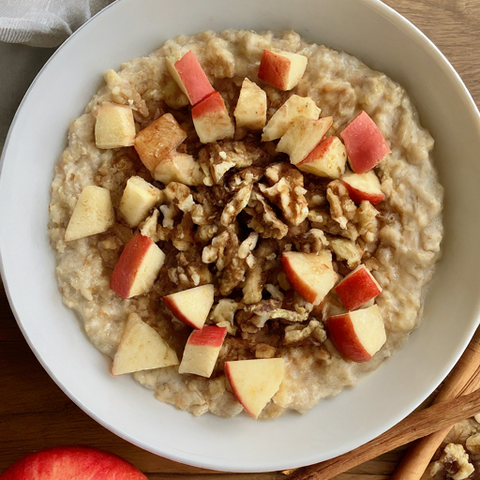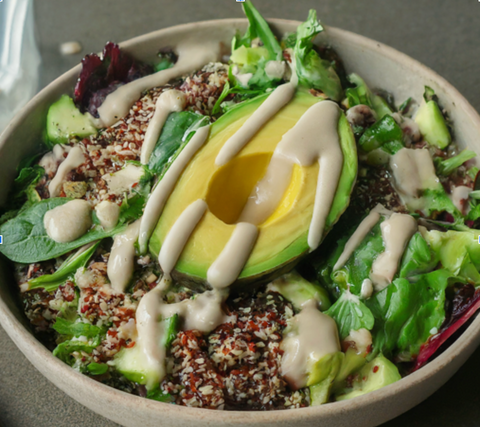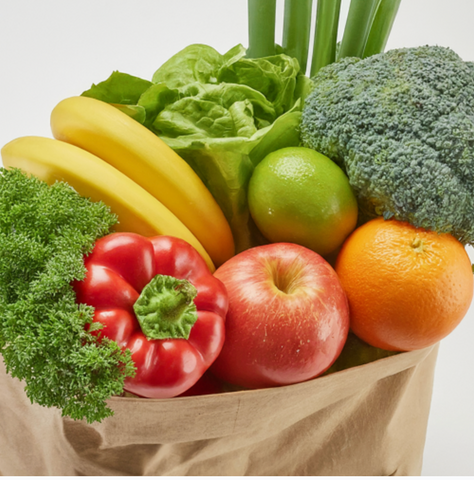Vegan 21-Day Anti-Inflammatory Diet

Here’s a fresh take on a Vegan 21-Day Anti-Inflammatory Diet, designed to nourish your body with whole, plant-based foods full of antioxidants, fiber, and omega-3s to fight chronic inflammation and promote well-being.
What is an Anti-Inflammatory Diet?
This eating plan focuses on foods that soothe inflammation—a natural immune response that can become problematic when persistent. Chronic inflammation is linked to conditions like heart disease, diabetes, and even some cancers.
Key Health Benefits of This Diet

-
Lower Risk of Chronic Illnesses
Eating an array of plant-based foods helps shield your body from long-term diseases. Research shows that antioxidant-rich and fiber-heavy diets may reduce the likelihood of heart disease, diabetes, and certain cancers. -
Digestive Health Boost
This way of eating supports a healthy gut by nurturing good bacteria and reducing inflammation in the digestive system. It can ease symptoms of IBS and IBD. -
Sustainable Weight Management
Reducing inflammation within fat cells promotes better metabolism, helping manage weight and reducing risks associated with obesity. -
Stronger Immune System
Anti-inflammatory foods bolster immune function, giving the body a better defense against infections and illnesses.
By centering your diet on whole foods and eliminating highly processed, inflammatory ones, you provide your body the tools it needs to recover, thrive, and stay healthy.
Vegan 21-Day Anti-Inflammatory Meal Plan
Week 1 Menu
Day 1
- Breakfast: Spinach, berry, chia seed smoothie with almond milk
- Lunch: Quinoa salad with mixed greens, cherry tomatoes, cucumber, and tahini-lemon dressing
- Snack: Apple slices with almond butter
- Dinner: Stir-fried tofu with bell peppers, broccoli, and brown rice
Day 2
- Breakfast: Overnight oats with blueberries, flaxseeds, and walnuts
- Lunch: Lentil soup served with a side of mixed greens and lemon vinaigrette
- Snack: Carrot sticks dipped in hummus
- Dinner: Grilled portobello mushrooms with steamed spinach and quinoa
Continue each day with meals similar in structure: smoothies or oats for breakfast, salads or soups for lunch, whole grains, legumes, and vegetables for dinner, and healthy snacks like nuts, seeds, or fruit.
Week 2 Overview
Keep building variety by mixing vegetables like butternut squash, zucchini noodles, or sweet potatoes. For snacks, try guacamole with cucumber slices, coconut yogurt with berries, or handfuls of trail mix.
Week 3 Sample Days

Day 16
- Breakfast: Chia pudding topped with almond butter and banana slices
- Lunch: Roasted sweet potato with black beans, salsa, and avocado
- Snack: Mixed nuts with a piece of dark chocolate
- Dinner: Lentil stew with spinach and quinoa
Day 21
- Breakfast: Kale, mango, and flaxseed smoothie
- Lunch: Wild rice salad with roasted vegetables and balsamic dressing
- Snack: Sliced celery with almond butter
- Dinner: Stuffed acorn squash with cranberries and quinoa
Shopping Lists by Week

Week 1 Essentials
Produce
- Spinach
- Berries (blueberries, strawberries, or raspberries)
- Broccoli, bell peppers, and sweet potatoes
- Avocados, apples, and mixed greens
Grains & Legumes
- Quinoa, brown rice
- Lentils, black beans
Pantry Staples
- Chia seeds, flaxseeds, and walnuts
- Tahini, almond butter, hummus
- Olive oil, balsamic vinegar
Week 2 Additions
Include some unique ingredients like butternut squash, acai powder, and portobello mushrooms. Expand your pantry with more pumpkin seeds and hemp seeds.
Week 3 Restock
Don’t forget staples like wild rice, steel-cut oats, tofu, and plenty of fresh greens to round out the last week.
Why This Diet Works
This meal plan emphasizes anti-inflammatory foods that nourish every part of your body. By cutting out animal products and processed foods, you can reduce inflammation, improve gut health, and support long-term wellness.
Try it for 21 days and notice the difference: clearer skin, better digestion, improved energy levels, and a stronger immune system.

